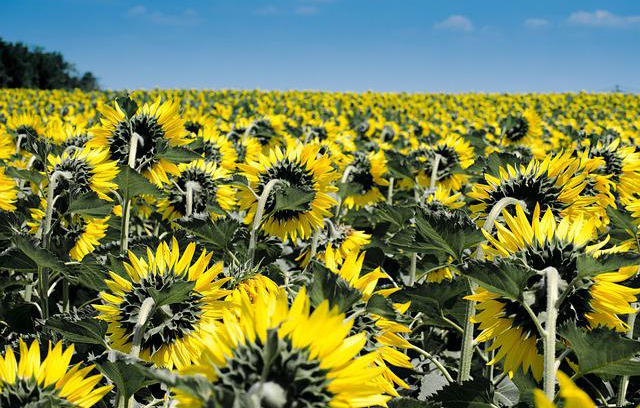Source: Ukragroconsult (Ukraine)
By the year 2025, Kazakhstan plans to increase the cultivation area of oilseed crops to 3.3 million hectares. Among these, sunflower plantations are set to expand by 121.2 thousand hectares, reaching a total area of 1.4 million hectares. This information was conveyed by Serik Zhumangarin, the Deputy Prime Minister and Minister of National Economy.
The Deputy Prime Minister highlighted that in line with the objective to double gross agricultural output, efforts are underway to diversify the structure of planted areas. Priority is given to reducing the dominance of monoculture crops such as wheat, as well as water-demanding crops like rice and cotton, while promoting the cultivation of more lucrative crops including oilseeds, vegetables, melons, and fodder plants.
To encourage farmers toward diversification, the government implements a range of supportive measures. These include subsidies for purchasing seeds, mineral fertilizers, and plant protection products, alongside compensation based on the volume of produce sold for processing. Furthermore, investment incentives are provided to assist in acquiring agricultural machinery and equipment.
Deputy Prime Minister Zhumangarin detailed that in 2024, a total of 2.6 billion tenge has been allocated for oilseed subsidies. Specifically, the Akmola region will receive 400 million tenge, Zhambyl region 347 million tenge, Zhetysu 262.5 million tenge, West Kazakhstan 507.6 million tenge, and Kostanay region 1.1423 billion tenge.
When asked about farmers’ access to grain storage facilities, the Deputy Prime Minister confirmed that existing storage capacities are sufficient to accommodate the previous year’s harvest and remaining stockpiles.
Deputy Prime Minister emphasized that the existing geographical placement of large storage facilities often fails to cater to the requirements of small-scale farmers, who must bear high transportation expenses to store comparatively modest quantities. Consequently, establishing small storage units near production sites has become an urgent priority.
He highlighted that investment subsidies are planned for the construction and modernization of storage facilities, particularly those handling oilseeds, encompassing the entire technological process: receiving, processing, cleaning, drying, storing, and shipping. Current regulations allow for subsidies covering up to 25% of the expenses related to building or expanding such infrastructures.
Furthermore, government support includes preferential loans to boost working capital and a 70% exemption on VAT for sales. When necessary, fuel and lubricants for drying equipment are supplied, and up to 30% of the costs for acquiring mobile dryers are reimbursed.
Serik Zhumangarin concluded by stating that these initiatives will notably decrease logistics expenses for agricultural producers and ensure the provision of essential storage facilities for their products.

